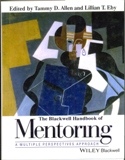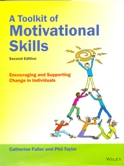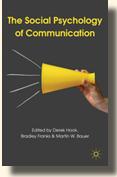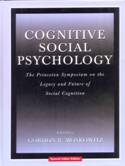
|
BLACKWELL HANDBOOK OF MENTORING, INDIAN REPRINT - TAMMY D. ALLEN (EX) |
Author |
TAMMY D. ALLEN
LILLIAN T. EBY
|
|
Cover Price : Rs 3,995.00
|
Imprint : Wiley India
ISBN : 9788126544301
YOP : 2014
|
Binding : Hardbound
Total Pages : 520
CD : No
|
|
"Allen and Eby's vision to integrate the fragmented literature on mentoring employees, students, and youth has produced a masterful volume that will be immensely helpful to researchers and practitioners."
—Jeffrey H. Greenhaus, Drexel University
"By juxtapositioning parallel articles on youth, academic, and workplace mentoring on a various of topics – theory, practice, outcomes – this handbook spurs researchers in all three areas to broaden their thinking and challenge their current perspectives. I particularly enjoyed thinking about what was unique and what was common across the theoretical pathways through which mentoring benefits the protégé. Each type of mentoring has its unique features, but I found more commonality than I had expected before reading this book. The summary chapters at the end of each section were a particularly useful feature of the book."
—Jean B. Grossman, Princeton University
"This volume is truly ground-breaking in its integrative treatment of heretofore largely distinct bodies of scholarship on mentoring relationships within the diverse contexts of youth programs, higher education, and the workplace. Collectively, the contributions make a compelling case for not only the theoretical, but also the practical value of taking careful stock of the commonalities as well as the uniquenesses that characterize mentoring relationships across differing critical points in the life span. This handbook does a great deal to advance our understanding of mentoring relationships and how best to unlock their potential and, undoubtedly, will stimulate many further important advances in the field."
—David DuBois, University of Illinois at Chicago
Contents
Notes on Contributors.
Foreword.
Acknowledgments.
Part I: Introduction:
1. Overview and Introduction
2. Definition and Evolution of Mentoring
Part II: Theoretical Approaches and Methodological Issues:
3. Youth Mentoring: Theoretical Approaches and Methodological Issues
4. Student–Faculty Mentoring: Theoretical Approaches and Methodological Issues
5. Workplace Mentoring: Theoretical Approaches and Methodological Issues
6. Reflections on the Theoretical Approaches and Methodological Issues in Mentoring Relationships
Part III: Naturally Occurring Mentoring Relationships:
7. Naturally Occurring Mentoring Relationships Involving Youth
8. Naturally Occurring Student–Faculty Mentoring Relationships: A Literature Review
9. Naturally Occurring Mentoring Relationships Involving Workplace Employees
10. Reflections on Naturally Occurring Mentoring Relationships
Part IV: Benefits of Mentoring:
11. The Benefits Associated with Youth Mentoring Relationships
12. Student–Faculty Mentorship Outcomes
13. The Benefits Associated with Workplace Mentoring Relationships
14. Reflections on the Benefits of Mentoring
Part V: Diversity and Mentoring:
15. Diversity and Youth Mentoring Relationships
16. Mentoring in Academia: Considerations for Diverse Populations
17. Diversity and Workplace Mentoring Relationships: A Review and Positive Social Capital Approach
18. Reflections on Diversity and Mentoring
Part VI: Best Practices for Formal Mentoring Programs:
19. Best Practices for Formal Youth Mentoring
20. Best Practices for Student–Faculty Mentoring Programs
21. Best Practices for Workplace Formal Mentoring Programs
22. Reflections on the Best Practices for Formal Mentoring Programs
Part VII: Integrating Multiple Mentoring Perspectives:
23: New Directions in Mentoring
24. Common Bonds: An Integrative View of Mentoring Relationships
Bibliography
Name Index
Subject Index |
|
 |

|
Toolkit of Motivational Skills 2/E, Indian Reprint - Catherine Fuller (EX) |
Author |
Catherine Fuller
Phil Taylor
|
|
Cover Price : Rs 2,995.00
|
Imprint : Wiley
ISBN : 9788126550647
YOP : 2014
|
Binding : Hardbound
Total Pages : 306
CD : No
|
|
This is an issue faced daily by professionals working in criminal justice, health care, education and social services. A toolkit to Motivational Skills shows how the motivational interviewing approach can draw out and sustain and individual’s own motivation for change. The skills can easily be generalized to suit many kids of difficulties, which makes it a flexible and practical tool for all those engaged in helping others to change. First developed for working with substance abuse, the approach has proved effective for work with a wide range of people who struggle with a variety of behaviour changes.
In this flexible and easy-to-use guide, Catherine Fuller and Phil Taylor draw on their extensive experience in staff development and training to provide;
- The theory, research and principles of the motivational approach
- A framework for motivational interviewing
- Exercises to develop the essential skills of listening, using motivational questions and summarizing discrepancies
- Strategies for working with resistance to change
- Advice on the practical application of motivational skills in different situations.
The text is supported by visual illustrations, exercises and example interviews, making it a pleasure to read, whether cover-to-cover, or as a resource that can be dipped in and out of.
Contents
• About the Authors
• Acknowledgements
• What is a Motivational Approach?
• How effective is the Motivational Approach?
• How to Use the Toolkit to Meet Individual Requirements
• Establishing Rapport and Making Contracts
• Exploring Current Motivation
• The Cycle of Change
• Listening Skills
• Summarizing and Reflective Listening
• Asking Open Questions
• Working with Resistance
• Exploring Ambivalence
• Developing the Desire to Change
• Affirmation and Confidence to Change
• Motivational Action Planning
• Supporting Change
• Putting it All Together; Cultivating your Skills
References
Index of Worksheets
Subject Index
|
|
 |

|
Freud's Mass Psychology Questions of Scale - Celine Surprenant |
|
|
Cover Price : Rs 2,495.00
|
Imprint : Palgrave / Macmillan
ISBN : 9781137604859
YOP : 2016
|
Binding : Hardbound
Total Pages : 204
CD : No
|
|
About the Book
Freud's Mass Psychology examines one of the key concepts in the theory of the psyche. Surprenant treats it as an epistemological issue rather than exclusively as a socio-political issue. Focusing on this neglected concept enables the author to raise anew the question of the 'application' of psychoanalysis, beyond a mechanistic understanding of this term and of Freud's writings. This study brings together important topics associated with psychoanalysis, recent French philosophy, and political thought. The original arguments that it develops should interest anyone preoccupied with the relevance of psychoanalytic concepts in philosophy and in related disciplines, notably in the field of literary studies.
CONTENTS
Psychoanalytic Concepts
Quantity, Mass and Metaphor
Sciences of the Crowd
On a Large Scale
Figurative Language According to Freud
Conclusion: ‘On Transience’
Reviews
'It is very rare for a writer on Freud to offer readers a whole new way of thinking about the language of psychoanalysis, but this is exactly what Céline Surprenant does in this remarkable volume. Taking Freud's neglected work on 'mass psychology' as her starting point, she explores with precision and audacity the astonishing concept-creating powers of the Freudian theoretical style.' - Professor Malcolm M. Bowie, Christ's College, University of Cambridge, UK
'An impressive accomplishment...By attending to the role of the neglected
concept of the 'mass', the author opens a novel and welcome perspective
onto the dynamics of Freudian psychoanalysis.' - Professor Daniel Conway, Department of Philosophy, Pennsylvania State University
|
|
 |

|
The Social Psychology of Communication - Derek Hook, Bradley Franks and Martin W Bauer |
Author |
Derek Hook
Bradley Franks
Martin W Bauer
|
|
Cover Price : Rs 2,495.00
|
Imprint : Palgrave / Macmillan
ISBN : 9781137604798
YOP : 2016
|
Binding : Hardbound
Total Pages : 388
CD : No
|
|
DESCRIPTION
This is the first comprehensive text on social psychological approaches to communication, providing an excellent introduction to theoretical perspectives, special topics, and applied areas and practice in communication. Bringing together scholars of international reputation, this book provides a unique contribution to the field.
CONTENTS
The Developmental Impact of Communicative Interaction
Dialogue, Critical Consciousness, and Praxis
Nonverbal Communication in Everyday Multicultural Life
Social Influence: Modes and Modalities
Pragmatic Theory and Social Relations
Communicative Action and the Dialogical Imagination
Representations, Identity, and Resistance in Communication
Rumours and Gossip as Genres of Communication
Empty and Full Speech
Communication as Rhetoric and Argumentation
Evolution and Communication
Religion as Communication
Mediated Health Campaigns: From Information to Social Change
The Social Psychology of Political Communication
Science Communication
ABOUT THE AUTHORS
EDMUND ARENS Professor of Fundamental Theology at the University of Lucerne, Switzerland SHARON ATTIA doctoral candidate at the Institute of Social Psychology at LSE, UK MARTIN BAUER Professor of Social Psychology at LSE, UK CATHERINE CAMPBELL Professor of Social Psychology at LSE, UK and the Director of the MSc in Health, Community and Development AMA DE-GRAFT AIKINS Research Fellow in social psychology at Cambridge University and a Visiting Fellow of LSE Health, LSE, UK JAPINDER DHESI doctoral candidate at the Institute of Social Psychology at LSE, UK LAUREN FELDMAN Assistant Professor in the School of Communication at American University, Washington, DC, USA BRADLEY FRANKS Senior Lecturer in Psychology at LSE, UK. HELEN AMELIA GREEN PhD student at the Institute of Social Psychology at LSE, UK JANE GREGORY Senior Lecturer in Science and Technology Studies at University College, London, UK. Her JOANNE HARDMAN Senior Lecturer in Educational Psychology at the University of Cape Town, South Africa DEREK HOOK Research Fellow in Psychology at the University of the Witwatersrand, South Africa, and Lecturer in Social Psychology at LSE, UK CAROLINE HOWARTH Lecturer in Social Psychology at LSE, UK MATTHEW C. NISBET Associate Professor in the School of Communication at American University, Washington, D.C, USA GORDON SAMMUT Associate Lecturer in Social Psychology at the University of Malta KERRY SCOTT is a health and social development specialist who recently completed the MSc in Health, Community and Development at the LSE, UK CATHY VAUGHAN public health practitioner who, since 1996, has worked in South East Asia and the Pacific in the areas of HIV and AIDS, youth health and the evaluation of health care programs |
|
 |

|
Foundation of Educational Psychology - 2 Ed. - S. Robinson |
|
|
Cover Price : Rs 180.00
|
Imprint : Ane Books Pvt. Ltd.
ISBN : 8180521540
YOP : 2009
|
Binding : Paperback
Total Pages : 224
CD : No
|
|
About the Book :-
In the present education scenario the knowledge is boundless. The book, titled: “Foundation of Educational Psychology” is a very good tool for the teacher-trainees for understanding the basic concept of psychological rudiments. It is very simple in language and also easy to comprehend the subject-matter. In this book, chapters are logically ordered and the topics are psychologically arranged according to the need of the readers. It also contains the pictures, diagrams and the questions to be reviewed. The unique feature of the book is its illustrations, which will give insight to the readers. The author hopes that this book will enlighten the teacher-trainees, professionals and teaching communities for their better understanding of human behaviour.
Contents :-
Foreword, Preface 1. Educational Psychology—Meaning, Nature and Scope 2. Growth and Development 3. Social, Emotional and Moral Development 4. Nature and Importance of Learning 5. Motivation 6. Techniques of Teaching 7. Nature of Intelligence and Creativity 8. Dimensions of Personality 9. Mental Health and Mental Hygiene
About the Author :-
Dr. S. Robinson has been working as a senior lecturer in psychology in Perunthalaivar Kamarajar College of Education, Karaikal (U.T. of Puducherry) since 2001. Prior to that he worked in Dr. Sivanthi Adithanar College of Education, Tiruchendur, Tamil Nadu for about 5 years. He has experience in counselling and guidance. For example, he was a professional counsellor nearly for 4 years in Christian Counselling Centre, Vellore. He was associated with acition-aid project for vocational rehabilitation for the severely disabled in rehabilitation institute, Christian Medical College and Hospital, Vellore for 3 years. He is a trainer for training the school and college teachers and other professionals for personality development programmes like interpersonal effectiveness, goal setting, stress management, time management, conflict management and decision-making.
|
|
 |

|
Social Psychology and the Unconscious - John A. Bargh (EX) |
|
|
Cover Price : Rs 2,495.00
|
Imprint : T & F / Routledge
ISBN : 9781841694726
YOP : 2014
|
Binding : Hardbound
Total Pages : 352
CD : No
|
|
"Over the past 25 years, research on the unconscious discovered that automatic processes can operate many complex functions commonly believed to require the involvement of consciousness. As impressive as these research findings were and still are, they are mute to the question of how automatic processes achieve their impressive effects. The principal authors of the chapters in Social Psychology and the Unconscious are of the next generation of automaticity researchers that addresses the question of ‘how’ head on. This is a vital resource for anybody who wishes to uncover why it is that higher mental processes benefit so much from automatic processes." - Peter Gollwitzer, Ph.D., Professor of Social–Personality Psychology, New York University
"The single greatest change in the landscape of social psychology in the last two decades has undoubtedly been the study of the unconscious, and of automatic processing of social information. In this book John Bargh, social psychology’s foremost ‘guru’ of automaticity, has assembled a blue-chip group of authors whose chapters provide state-of-the-art commentaries on what we have learned about automaticity and its effects in diverse domains of social life. Highly readable and enlightening, this book will be invaluable for researchers, teachers, and scholars throughout social psychology." - David L. Hamilton, Ph.D., Professor of Psychology, University of California, Santa Barbara
Evidence is mounting that we are not as in control of our judgments and behavior as we think we are. Unconscious or ‘automatic’ forms of psychological and behavioral processes are those of which we tend to be unaware, that occur without our intention or consent, yet influence us on a daily basis in profound ways. Automatic processes influence our likes and dislikes for almost everything, as well as how we perceive other people, such as when we make stereotypic assumptions about someone based on their race or gender or social class. Even more strikingly, the latest research is showing that the aspects of life that are the richest experience and most important to us - such as emotions and our close relationships, as well as the pursuit of our important life tasks and goals - also have substantial unconscious components.
Social Psychology and the Unconscious: The Automaticity of Higher Mental Processes offers a state-of-the-art review of the evidence and theory supporting the existence and the significance of automatic processes in our daily lives, with chapters by the leading researchers in this field today, across a spectrum of psychological phenomena from emotions and motivations to social judgment and behavior.
The volume provides an introduction and overview of these now central topics to graduate students and researchers in social psychology and a range of allied disciplines with an interest in human behavior and the unconscious, such as cognitive psychology, philosophy of mind, political science, and business.
Contents
1. What is Automaticity? An Analysis of Its Component Features and Their Interrelations.
2. Effects of Priming and Perception on Social Behavior and Goal Pursuit.
3. Automaticity in Close Relationships
4. On the automaticity of Emotion
5. The Automaticity of Evaluation
6. The Implicit Association Test at Age 7: A Methodological and Conceptual Review
7. Automatic and Controlled Components of Social Cognition: A Process Dissociation Approach
|
|
 |

|
Cultural Psychology, Indian Reprint 2014 - Carl Ratner |
|
|
Cover Price : Rs 4,995.00
|
Imprint : T & F / Routledge
ISBN : 9780805854770
YOP : 2014
|
Binding : Hardbound
Total Pages : 286
CD : No
|
|
Contents:
Preface.
Part I: Psychology, Culture, Politics, Science.
Introduction to Macro Cultural Psychology.
Macro Culture.
Part II: Principles of Macro Cultural Psychology.
The Dialectical Integration of Psychological Phenomena and Macro Cultural Factors.
Part III:Applications of Macro Cultural Psychology to Research Methodology, Social Reform, and Personal Growth.
Research Methodology for Macro Cultural Psychology.
Macro Cultural Psychology, Social Reform, and Psychological Change.
Macro Cultural Psychology and Personal Growth.
Scientific and Political Deficiencies of Psychological Theories/Constructs That Minimize Macro Culture.
Epilogue: A Philosophy of Science and a Social Philosophy for Macro Cultural Psychology.
References
Endnotes
Author Index
Subject Index
|
|
 |

|
Cognitive Social Psychology, Indian Reprint - Gordon B.Moskowitz |
Author |
Gordon B. Moskowitz
|
|
Cover Price : Rs 4,995.00
|
Imprint : T & F / Routledge
ISBN : 9780805834141
YOP : 2014
|
Binding : Hardbound
Total Pages : 514
CD : No
|
|
Contents:
Part I:The Motives Driving Social Cognition
• A Relational Approach to Cognition: Shared Experience and Relationship Affirmation in Social Cognition.
• The Personal Need for Structure and Personal Fear of Invalidity Measures: Historical Perspectives, Current Applications, and Future Directions.
• Behavioral Discrepancies and the Role of Construal Processes in Cognitive Dissonance.
• Self-Evaluation: The Development of Sex Differences.
• Evaluating the Self in the Context of Another: The Three-Selves Model of Social Comparison Assimilation and Contrast.
• Outgroup Favoritism and the Theory of System Justification: A Paradigm for Investigating the Effects of Socioeconomic Success on Stereotype Content.
Part II:Building Blocks of Social Cognition: Representation and Structure.
• A Case for the Nonconscious Self-Concept.
• The Role of Theories in Mental Representations and Their Use in Social Perception: A Theory-Based Approach to Significant-Other Representations and Transference.
• What We Theorize When We Theorize That We Theorize: Examining the "Implicit Theory" Construct From a Cross-Disciplinary Perspective.
• From Cognition to Culture: The Origins of Stereotypes That Really Matter.
• The Dynamic Relationship Between Stereotype Efficiency and Mental Representation.
• A Cornerstone for the Science of Interpersonal Behavior? Person Perception and Person Memory, Past, Present, and Future.
Part III:Subjective Perception and Motivated Judgment.
• On Partitioning the Fundamental Attribution Error: Dispositionalism and the Correspondence Bias.
• Let's Not Forget the Past When We Go to the Future: On Our Knowledge of Knowledge Accessibility.
• Illusory Correlation and Stereotype Formation: Tracing the Arc of Research Over a Quarter Century.
• The Other Side of the Story: Transparency Estimation in Social Interaction.
• The Flexible Correction Model: Phenomenology and the Use of Naive Theories in Avoiding or Removing Bias.
• Exploring the Boundaries of Rationality: A Functional Perspective on Dual-Process Models in Social Psychology.
Part IV:Control Over Cognition and Action.
• The Crossroads of Affect and Cognition: Counterfactuals as Compensatory Cognition.
• Goals and the Compatibility Principle in Attitudes, Judgment, and Choice.
• Preconscious Control and Compensatory Cognition.
• Implicit Stereotypes and Prejudice.
• Exerting Control Over Prejudiced Responses.
References
Author Index
Subject Index
|
|
 |

|
Psychology of Adjustment - Braj Bhushan and Alok Bajpai |
Author |
Braj Bhushan
Alok Bajpai
|
|
Cover Price : Rs 999.00
|
Imprint : Ane Books Pvt. Ltd.
ISBN : 9789386761941
YOP : 2019
|
Binding : Hardbound
Size : 6.25" X 9.50"
Total Pages : 164
CD : No
|
|
ABOUT THE BOOK
This book is about processes that undergo in the mind, individually or collectively, and are instrumental in creating adjustment. The purpose is to understand adjustment not as an alien subject but as an organic process of human life. It is in fact, the dynamic continuum of compromise and adjustment, a universal gift given to mankind. The structure is on a framework of psychological understanding but the flow is more narrative.
The book is rooted in Indian cultural context and the examples are drawn heavily from an Indian life and psyche. Each chapter begins with a mythological/historical reference and ends with a section ‘Time to Reflect’.
Contents
1. Human Behaviour: Psychological and Social Significance
● Human Adjustment Process ● Prioritization of Immediate and Intermediate Goals ● Evolution of Social Norms ● Adjustment: “The Normality”
2. Dimensions of Subjective Adjustment
●Dimensions ● Adjustment— Range of Reactions
3. Maintenance Needs
●Need Hierarchy Theory and Maintenance Needs
● Maintenance Needs
4. General Adjustive Behaviour and Frame of Reference
●Frames of reference: Life Stages ● General Adjustive Behaviour ● Characteristics of Healthy Development
● Self Assumptions
5. Emotions and Adjustment
●Emotion and Adjustment ● Emotion: The Indian
Perspective ● Emotions and Health
6. The Art of Adjustment: Defending the Self
●Neurotic Nucleus and Neurotic Paradox ● Defending
against threats ● Task-oriented Reaction Pattern
● Damage Repair Mechanisms ● Defense Mechanisms
7. Adjusting to Violence
●Understanding Frustration ● Model of Aggression
● Aggressive Behaviour ● Pathological Aggression
● Adjusting to Violence
8. Our Time
9. Be the Change
●Self and the Other ● Emotions ● Change and Its Context ● Process of Transformation
References
ABOUT THE AUTHORS
Dr. Braj Bhushan is a professor of psychology at the Indian Institute of Technology Kanpur. His major area of interest is Cognitive Neuropsychology. He has been working in the area of psychological assessment since last two decades. Besides Young Scientist Award (ISCA) and several others he was recently conferred Shri Deva Raj Chair professorship.
Dr. Alok Bajpai is a consultant psychiatrist. His work focuses on children, adolescents and women, especially with symptoms of depression, stress and anxiety. His work extends beyond the confines of clinic into freelance teaching of mental health issues and life skills. He is also a regular columnist who writes about issues of mental health and socio-politics of life.
|
|
 |

|
Applied Psychology |
|
|
Cover Price : Rs 1,495.00
|
Imprint : Ane Books Pvt. Ltd.
ISBN : 9789386761255
YOP : 2017
|
Binding : Hardbound
Size : 6.25
Total Pages : 288
CD : No
|
|
About the Book
Contents
Applied psychology is a field that focuses on putting practical research into action. Applied psychology is the use of psychological methods and findings of scientific psychology to solve practical problems of human and animal behavior and experience. Mental health, organizational psychology, business management, education, health, product design, ergonomics, and law are just a few of the areas that have been influenced by the application of psychological principles and findings. In addition, a number of specialized areas in the general field of psychology have applied branches. However, the lines between subbranch specializations and major applied psychology categories are often blurred. For example, a human factors psychologist might use a cognitive psychology theory. This could be described as human factor psychology or as applied cognitive psychology. It is an ideal book for all areas of applied psychology options, including forensic, health psychology, educational psychology, sports psychology and counselling - for students on graduate
courses. This book will also be a valued addition to campus career centres.
1.Introduction to Applied Psychology 2. Frontiers: From Data to Truth in Psychological Science 3. Counseling, Psychological, and Social Work Services 4. Educational Psychology: Applications for Learning and Teaching 5. The Place of Psychology in the System of Sciences 6. Human Factors and Ergonomics 7. The Role of Forensic Psychology in Criminal Justice 8. Criminal Profiling and Psychoanalysis of Violent Crime 9. Multiple Personality Disorder and Criminal Responsibility 10. Critical Thinking in Psychology
|
|
 |

|
Abnormal Psychology |
Author |
Lakshameshwar Thakur
|
|
Cover Price : Rs 1,495.00
|
Imprint : Ane Books Pvt. Ltd.
ISBN : 9789386761316
YOP : 2018
|
Binding : Hardbound
Size : 6.25
Total Pages : 2017
CD : No
|
|
About the Book
Abnormal psychology is the study of abnormal behavior in order to describe, predict, explain, and change abnormal patterns of functioning. Abnormal psychology studies the nature of psychopathology and its causes, and this knowledge is applied in clinical psychology to treating patients wit psychological disorders. There is evidence that some psychological disorders are more common than was previously thought. The concept of abnormality is imprecise and difficult to define. Examples of abnormality can take many different forms and involve different features, so that, what at first sight seem quite reasonable definitions, turns out to be quite problematical. There are several different ways in which it is possible to define 'abnormal' as opposed to our ideas of what is 'normal'. This book will provide graduate students, a comprehensive understanding of the features and epidemiologies, risk factors and prevention, assessment and treatment, and long-term prognosis and associated stigma of mental disorders.
Contents
1. Introduction of Abnormal Psychology 2. Intellectual disability and Disorders 3.Emotions, Personality and Psychopathology 4. Mental Illness and Abnormal Behaviour 5. Diagnostic and Management Guidelines for Mental Disorders in Primary Care 6. Care and Treatment of Abnormal behavior and Mental Illness 7. Education of Children with Special Needs 8. The Challenge of Children with Special Needs 9. Genes, Environment, and Criminal Behavior 10. The Effects of Gender, Sexuality and Socialization on Abnormal Behavior 11. Effects of Mental Health on Individuals and Populations 12. Abnormal Psychology in Context:Voices and Perspectives
|
|
 |
|